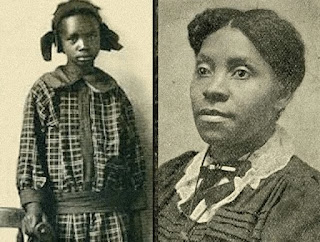Did money make them colour blind Sarah Rector, a little black girl became one of the richest girl in the world in 1913, when oil was found on the land that the government had allotted to her family.
Did money make them colour blind
Sarah Rector, a little black girl became one of the richest girl in the world in 1913, when oil was found on the land that the government had allotted to her family. By the time she turned 18, Rector was already a millionaire and was so rich that the Oklahoma Legislature declared her as a white person.
Rector’s parents, Rose McQueen and Joseph Rector, were the Black grandchildren of Creek Indians before the Civil War, and were descendants of the Muscogee Creek Nation after the Treaty of 1866. As such, they and their descendants were listed as freedmen on the Dawes Rolls, by which they were entitled to land allotments under the Treaty of 1866 made by the United States with the Five Civilized Tribes. This is how Sarah Rector came to own the land that would make her a millionaire.
The parcel allotted to Sarah Rector was located in Glenpool, 60 miles from where she and her family lived. It was considered inferior infertile soil, not suitable for farming, with better land being reserved for white settlers and members of the tribe. The family lived simply but not in poverty; however, the $30 annual property tax on Sarah’s parcel was such a burden that her father petitioned the Muskogee County Court to sell the land. His petition was denied because of certain restrictions placed on the land, so he was required to continue paying the taxes. To help cover this expense, in February 1911, Joseph Rector leased Sarah’s parcel to the Standard Oil Company.
In 1913, the independent oil driller B.B. Jones drilled a well on the property which produced a “gusher” that began to bring in 2,500 barrels of oil a day. Rector began to receive a daily income of $300 from this strike.
The law at the time required full-blooded Indians, black adults, and children who were citizens of Indian Territory with significant property and money, to be assigned “well-respected” white guardians. Thus, as soon as Rector began to receive this windfall, there was pressure to change Rector’s guardianship from her parents to a local white resident named T.J. (or J.T.) Porter, an individual known to the family.
By the time she turned 18 in 1920, Rector was already a millionaire. She owned stocks, bonds, a boarding house, businesses, and a 2,000-acre piece of prime river bottomland1. At that point, she left Tuskegee and, with her entire family, moved to Kansas City, Missouri.






Comments
Post a Comment